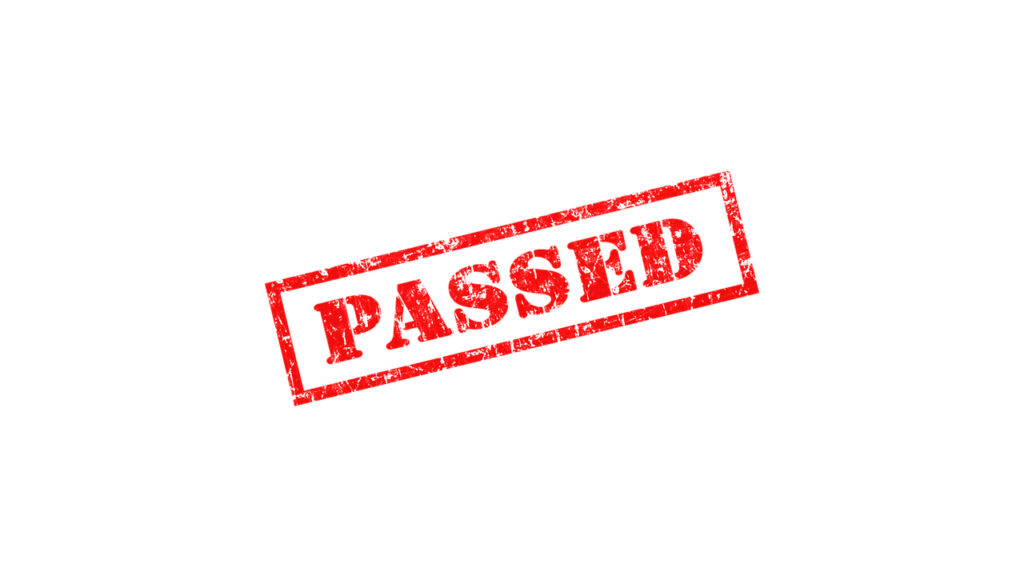Getting into the Foreign Service is seriously hard. No one will say *how* hard… that’s a state secret, supposedly? And there were some parts of the process that I swore not to reveal (oooooo! mysterious!) … But in case you want to join up yourself, or you’re wondering how a yahoo like me got in, here’s how we did it:
(You can find all of this on the State Department website)
The Application
Filter #1
As mentioned in my timeline, I learned about the Foreign Service at a job fair. For years, Jen and I kicked around the idea and I got recruiting emails. As our kids got old enough to travel, we started doing real research and sat down with our local Diplomat in Residence. When we decided to go for it, it took a few months for me to prepare for the seven filters that sift applicants.
There are 2 tracks to joining the FS. Generalists (aka Foreign Service Officers) are the bulk of the service. They join by first taking the Foreign Service Officer Test (or, they used to… the process is changing). Specialists – medical providers, security folks, IT nerds, diplomatic couriers, engineers, and so on – skip the FSOT because they already have advanced degrees and work experience.
For specialist hopefuls like me, the first filter is a janky application on a government system which links to a non-government system which links via dial up modem to this computer somewhere in a government closet:

Foreign Service jobs have exacting requirements, which are meticulously detailed in the lengthy job postings. You enter your resume, answer some short essays about your accomplishments/ motivation, and submit a whole lotta paperwork (licensure, college transcripts, astrological sign, etc.)
You either do it all correctly, or you don’t. Many don’t, thus ending their candidacy before it even starts.
To pass: Make sure you meet every job requirement, no exceptions. The essay prompts are part of the job posting, so write your essays beforehand. Get help on the essays and your resume, then copy-paste your final versions into the actual application. Give yourself weeks to get the whole thing ready, rewrite essays, and get transcripts.
The Quality Evaluation Panel
Filter #2
If you’ve crossed all your T’s and dotted all your i’s, your candidacy is passed on to the QEP. The panel reads through your application, asking, “if we pass this person along, are they likely to get and accept a job offer?”
What portion of applicants do they pass along? That’s a secret! But they reject many more than they pass on.
It took about 3 months for me to hear back that I’d passed the QEP. I should have relaxed a bit more in the interim.
To pass: you had someone help you with your application, essays, and resume, right? You did! Perfect! Now go back to your normal life for 3-4 months, while you wait for a coveted invite to the Oral Assessment.

The Oral Assessment
Filter #3
This is it. This is the whole enchilada. This is game day. The OA is the most intense job interview I’ve ever had. Despite the name, it starts with two non-oral exercises. There’s a multiple-choice test with questions like, “Someone in your clinic is stealing medications. What do you do?”
a. ignore it and just order more meds. you only have 2 months left in this post, anyway
b. confront your suspect in front of everyone like on scooby-doo
c. run straight to the ambassador like a tattle-tell and demand they tell POTUS
d. it was you. you’re the one stealing meds
… and then you’re like, “uh none of these are good answers! Um… what?” (Ok fine, it’s not that confusing. I’m not a fan of behavioral assessments.)
For “oral” assessment part 2, you’re given several written prompts and a short time to respond in essay form.
Finally, you’re interviewed by a panel who grill you for 2-3 hours to assess if you’re a good fit for the Foreign Service (the “13 dimensions”), and if you have the right skills for your specialty. They are impeccably professional. There is no rapport building or small talk. To keep it objective and universally fair, the interviewers don’t react to anything you say. They read the same questions word for word to every candidate, stare impassively while you answer, then start reading the next question. It’s unnerving! At least the medical questions were realistic enough that I could answer as if it were just another day in clinic (a particularly challenging day!)
The good news: When it’s over, it only takes a few minutes for the panel to give you a final score between 1.00-7.00. Passing is 5.25, but if you really want this job, you should hope to score higher.
It’s common to take the oral assessment several times before achieving a good score – but each time, you have to reapply at step 1! I wanted this rigmarole to be one-and-done, so I hired a coach. I practiced timed essays and she graded them. We did several mock interviews together, including me donning a full suit and tie – to her credit, these sessions were a bit intense, just like the real thing! When I wasn’t working with my coach, my amazing wife let me rehearse the same anecdotes with her over and over. And over! She even tested me with flash cards for the 13 dimensions. With their help, I passed my first and only OA with a high score.
To pass: remember that what’s really being tested is your ability to pass the oral assessment – not how exotic your stories are, how impressive your resume is, how good you are at your current job, or how much you want this one. Prepare, practice, and stay laser-focused on the 13 dimensions. Friends and family can help you rehearse, but you should also invest in a career/life coach who can give you unbiased feedback and expert insight.
Medical Clearance
Filter #4
If you’ve made it this far, it’s all downhill from here! A very long hill…
Once passing the OA, you get “sensitive” access to a whole bunch more information about the job, and a checklist of next steps, including a medical clearance.
To pass: read the health/physical requirements in the job posting. Get a physical and some lab work. Fill out a lot of paperwork, and submit your clearance packet exactly as instructed. Wait a few weeks.
Top Secret Security Clearance
Filter #5
Area 51. Aliens. UFO’s. Sorry, I can’t tell you what I know. But I can say this: the security investigators were friendly and made the process easy. My friends and neighbors were amazing to give their time to the investigators. They got a kick out of questions like, “So how did you and Cameron meet? Also, do you think perhaps he’s a spy, maybe?”
Security clearance can take months to years, depending on where you’ve lived and traveled, and who you’re married to. See my timeline here.
To pass: There’s nothing to *do* to pass, just a whole bunch of things to *don’t do.* Like don’t apply until you’re pretty sure you can pass a security clearance, and don’t lie about anything along the way. Do expect investigators to be incredibly thorough.
The Final Suitability Review
Filter #6
By now, your candidacy is a nice, neat package. Your application didn’t get tossed out and, in fact, was found to be quality. You’ve scored high enough on the oral assessment. You’ve gotten medical and security clearances… Goodness, you’re almost hirable!
The Suitability Review panel takes one last look at your candidacy, just in case.
To pass: wait patiently for a few months. Burn some sage.
The Register of Cleared Candidates
Filter #7
One day out of the blue, you’ll be notified that you’re on *The Register.* Oooooooo!
Think of the register as a list of approved, hirable candidates waiting for job offers, ranked in order by their OA scores. When it’s time for the State Department to build a new Foreign Service class, the job offers start at the top of the list and go down. For example, if State decides they need 4 new medical providers, they contact the top 4 people on the list.
In other words, it doesn’t matter how long you’ve been on the register, only what your score is. With a high OA score and few other people on the register, you could be offered a job in just a few days. With a low score, you might be in the nightmare scenario of waiting for a job offer that never comes, while people with higher scores are added above you and hired, over and over. Talk about purgatory! If you’re not offered a job within 18 months, your candidacy “expires.” Ouch!
You can improve your rank on the list if you’re fluent in another language, or if you’re a veteran. Neither bonus applied to me.
To pass: You’ve done the work, now split your brain into two halves: one that keeps living your normal life, and one that starts admitting the reality that you’re probably joining the Foreign Service. Try not to let that tension destroy you. Perhaps don’t tell your employer yet, but do tell friends and family.
You Did It! Yay!
The cake is not a lie!
After all your hard work and patience, one day out of the clear blue will come an email saying, “Congratulations. The Department of State is extending an appointment offer to you to join the Foreign Service.”
For us, it happened the same day our entire family tested +positive for COVID-19. The same day! Cosmic rebalancing, I guess. Both outcomes had been theoretical possibilities, and then suddenly both became reality. Our elation at getting in was blunted by our fevers, but we toasted little cups of children’s tylenol, and after a few days we emerged triumphantly from our covid haze.

So that’s how we did it!
How do we do the next parts? Ah jeez, we have no idea!
But perhaps this post can be a useful trail of breadcrumbs to any wishing to come after. I certainly wish I had known all of the above from the outset. Good luck and Godspeed to all of us!